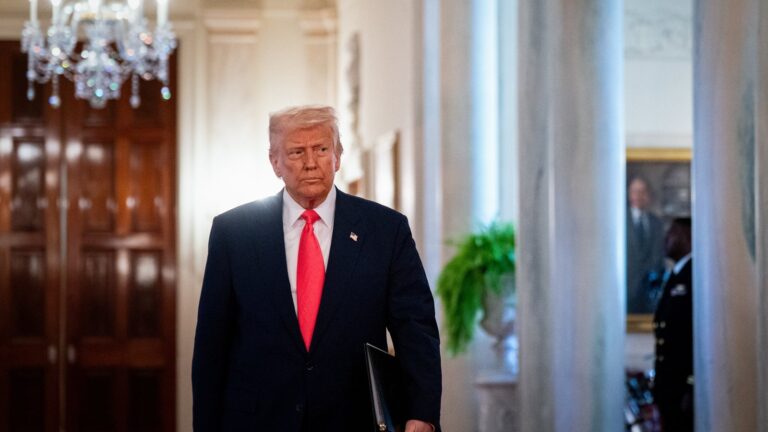Trump Pauses Tariffs: Stock Markets Rally Amid Trade War Tensions
In a surprising move, US President Donald Trump has decided to pause the significant tariffs recently imposed on numerous countries, leading to a substantial rebound in global stock markets. This decision, however, comes at a time when tensions are escalating in the ongoing trade war with China, the world’s second-largest economy.
Market Reactions to Trump’s Tariff Pause
Trump’s reversal, announced less than 24 hours after new tariffs went into effect, followed a period of unprecedented financial market volatility reminiscent of the early days of the Covid-19 pandemic. The upheaval resulted in the loss of trillions of dollars from stock markets and caused a notable increase in US government bond yields, prompting the attention of President Trump.
Stock Index Surge and Global Implications
Following the announcement, US stock indexes surged, with the benchmark S&P 500 closing 9.5% higher. Bond yields decreased from earlier peaks, and the US dollar made a comeback against safer currencies. Asian markets also reflected this optimism, with Japan’s Nikkei index rising nearly 9%, while European futures hinted at a sharp recovery.
Trump’s On-Again, Off-Again Trade Policies
Since taking office in January, President Trump has often threatened various punitive measures aimed at trading partners, only to retract many of them shortly after. This inconsistent approach has left world leaders perplexed and business executives apprehensive about future trade policies.
Market Movements and Federal Response
US Treasury Secretary Scott Bessent mentioned that the tariff pullback was a strategy to bring countries to the negotiation table. However, Trump’s admission that market panic influenced his decision shows the balancing act between economic policy and market stability. “You have to be flexible,” he remarked, even as he maintained pressure on China, announcing an immediate increase in tariffs on Chinese imports from 104% to 125%.
Escalating Trade Disputes
In response to Trump’s tariffs, Beijing imposed an 84% tariff on US imports, signaling that the trade war is far from over. Both countries remain locked in a tit-for-tat battle that poses significant implications for global trade dynamics.
Analyzing the Long-Term Effects
Despite the temporary relief in stock prices, experts suggest that the long-term impact of Trump’s tariffs may still be felt. Business investments and household spending are reportedly slowing due to tariff concerns, with many Americans anticipating price increases in the near future. Goldman Sachs recently adjusted its recession probability to 45%, attributing lingering concerns about the overall tariff impact.
Negotiation Efforts and Future Outlook
While Trump expressed optimism about striking a deal with China, his administration appears to be prioritizing talks with other countries. As the negotiation landscape unfolds, it remains uncertain how it will shape future trade policies. For now, the temporary tariff pause has provided a glimmer of hope amidst the ever-evolving global trade environment.
